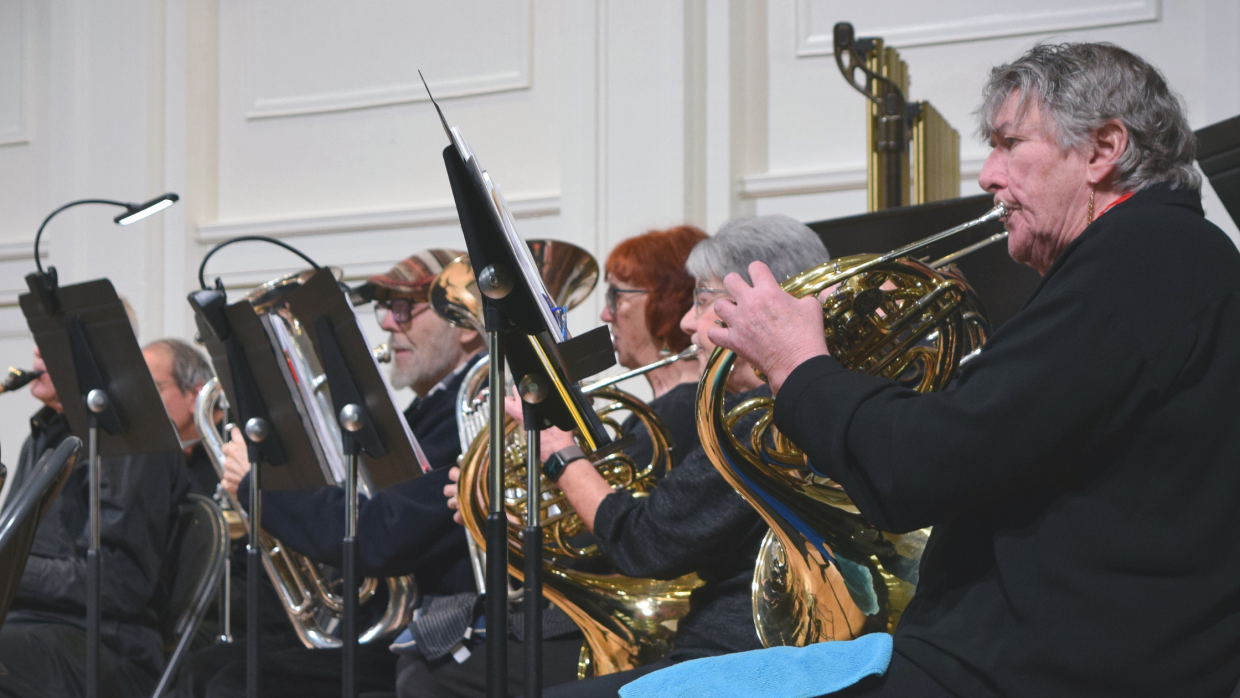How to Start Playing Music Again as an Adult

October 8th, 2025
Between a busy schedule, family responsibilities, or a demanding career, there can be many reasons why people pause their musical journey. But when the pace of life shifts, many adults rediscover how much joy music once brought them. Maybe you miss the feeling of progress or are looking for a creative outlet. In this guide, we’ll look at what it takes to start playing again after years away, how to make it sustainable, and why it’s one of the most rewarding things you can do for yourself.
How to Start Playing an Instrument Again After Years
The first step to returning to music is to take stock of your current situation. Factors like your schedule, finances, and any physical limitations will help you determine the best way to begin. It is also helpful to reflect on your past experience with your instrument. What did you enjoy most? What would you have done differently? Are you hoping to revisit an instrument you already know, or are you curious to try something new?
Other factors to consider:
- Transportation and space: Larger instruments like cello or harp may require more room or planning.
- Physical needs: Wind instruments, for example, require healthy breath control, while string instruments may require fine motor skills.
- Budget and schedule: Everyone’s situation is different, and that’s okay. If cost or time are concerns, the Music Institute of Chicago's Adult Studies program offers discounts for senior citizens or flexible lesson packages for adults to accommodate busy lifestyles.
The great thing about learning music is its flexibility. Music lessons can fit into virtually any routine, lifestyle, or stage of life. If you're looking for more guidance, a one-on-one consultation with an expert can help you determine first steps.
The Benefits of Learning Music as an Adult
There are a number of benefits or learning an instrument for all ages and as an adult, you may appreciate them even more deeply. Returning to music can support your mental, emotional, social well-being and overall enhance your everyday life. Some of the key benefits include:
- A boost in cognitive function: Music challenges the brain, improving focus, coordination, memory, and problem solving skills.
- Reducing stress: Taking time to make music helps quiet the mind, slow your breathing, and relieve tension.
- A creative outlet: Music provides a space to be creative and as an adult, you have the freedom to explore the genres and pieces that speak to you.
- Community connection: Joining an ensemble, taking lessons, or attending recitals can help you meet others who share your interests.
- Personal growth and fulfillment: Progressing on your instrument at your own pace reminds you that it’s never too late to grow, learn, and enjoy something new.
What is the Best Way for Adults to Take Music Lessons?
Every adult learner is different, so it helps to find an approach that fits your goals and schedule. Some schools offer programs designed specifically for adult learners that offer flexible lesson packages or discounts. Choosing the best way to take lessons for you depends on a few factors:
- Time: Think about a routine that you can realistically commit to. Whether it’s a 30-minute private lesson once a week, a one-hour group class twice a week, or a combination, music lessons are flexible to meet your scheduling needs.
- Learning Style: Do you learn best one-on-one, or do you enjoy the motivation of learning alongside others?
- Goals: Are you working toward a performance, or do you simply want to play for relaxation and enjoyment?
Here’s a quick look at your options:
- Private lessons: Personalized instruction and flexible pacing. Ideal for building skills efficiently at a pace that works for you.
- Group classes and ensembles: A social, supportive environment that helps you stay motivated while connecting with other adult learners.
- Online lessons: Convenient for busy adults or those who travel frequently. Available for private lessons and group classes. Even if you’re not ready to return to an instrument yet, there are also online classes available for music appreciation, another great way to include music in your life.
Learning on Your Own vs Formal Lessons
It’s tempting to teach yourself through apps or online videos, but structured lessons and classes at a music school offer long-term advantages that go far beyond convenience.
- Expert feedback: Teachers can spot technique issues early and guide efficient improvement.
- Structured learning path: Schools design progressive lesson plans that keep you advancing.
- Accountability and motivation: Having a scheduled lesson helps you stay consistent.
- Access to resources: Music schools often provide practice rooms, master classes, and performance opportunities for a comprehensive experience.
- Community and inspiration: Being surrounded by other musicians keeps learning fun and social.
Learning in a school environment gives you a clear, guided path, allows you to track your progress, and most importantly connects you with a musical community that supports your growth.
Adult Studies at the Music Institute of Chicago
Getting back into music doesn’t mean you have to be perfect, just curious and motivated! With clear goals and the right guidance, picking up an instrument again can become one of the most rewarding parts of your week.
The Adult Studies program at the Music Institute of Chicago makes it easy to dive back in, offering expert faculty, a welcoming community, performance opportunities, and a full range of classes and lessons designed for adult learners at any stage.
